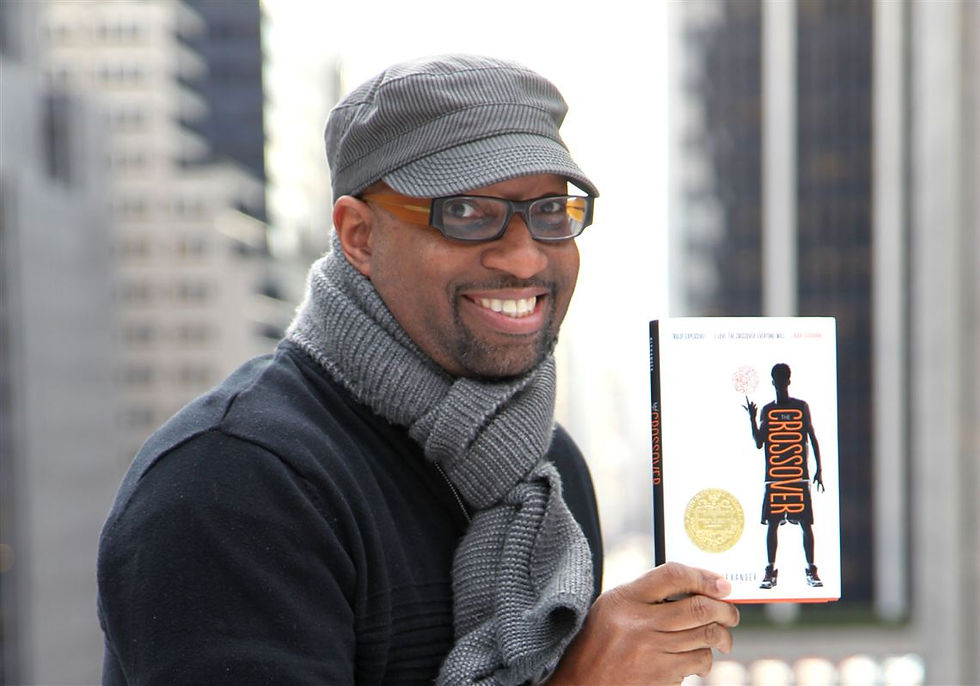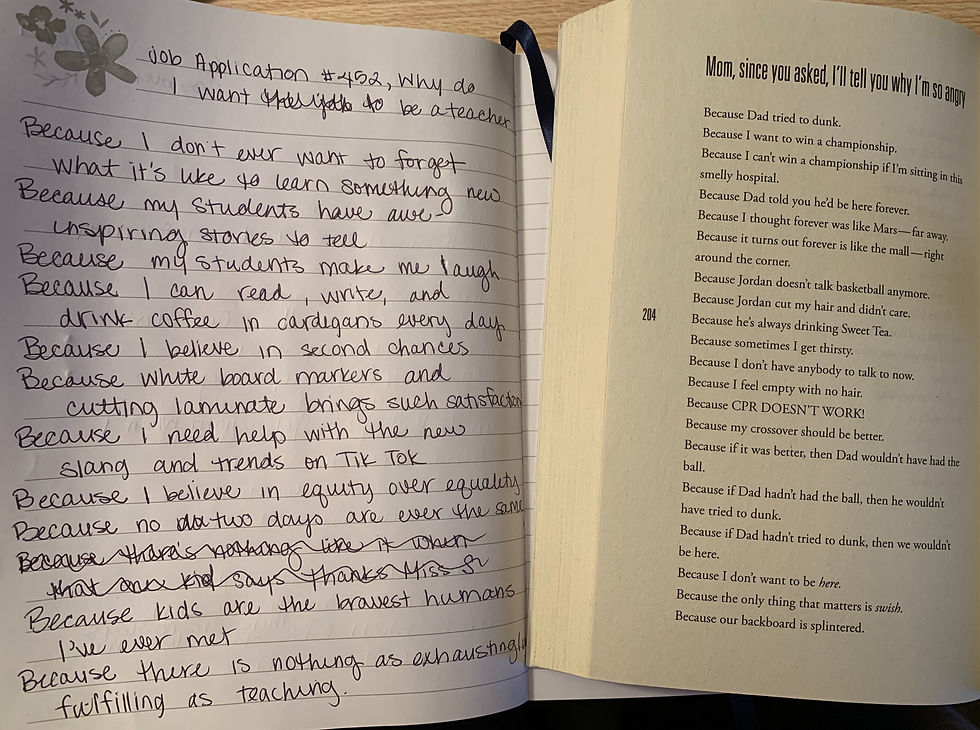Writer's Block, Kwame, and Drafty Drafts
- Miss. Songey
- Mar 3, 2021
- 3 min read
The Crossover | Kwame Alexander (Twitter: @kwamealexander Instagram: @kwamealexander)
It’s been a writer’s block kind of week.
But that’s ok.
It happens to the best of us.
And it’s normal.
So, in an effort to normalize drafty drafts as part of the writing process (virtual nod to Mentor Texts), I will ignore the temptation of sitting this on the back burner and see what happens if I just keep typing…
This week, I am thinking about poetry as an entry point into reading and writing, specifically targeting reluctant, adolescent boys. I am not here to suggest that reading and writing needs to be associated with gender—that is not the purpose of this post. I am simply reflecting on what little experience I have, and I have noticed that encouraging adolescent boys to pick up a pen or a book is generally more challenging than when I work with young girls. Maybe that is because of the gender stereotypes that have molded the kiddos over the years, and maybe it’s not. Like I said, that is not the point today. I, though, have been thinking about content and accessibility and how that does seem to have a role in hooking new readers and writers.
I don’t really know at what age reading becomes “uncool” because most young children enjoy story time. Most young children want to have books read to them, and many times, they are eager to share story after story after story about everything they see and experience. But somewhere between that point and when those kids enter high school, the allure of reading books and creating stories has dimmed significantly. Part of me wonders if this shift in attitude is because reading and writing has been associated with standardized reading comprehension passages and “traditional” writing rules; nonetheless, I accept The Challenge.
*The Challenge (as referred to above) pertains specifically to reintroducing reluctant readers to the curiosity and wonder that can be sparked by reading and writing.

Take Kwame Alexander’s The Crossover as a prime example. Not only is it award-winning, but it is also written in verse and covers a range of delectable topics from healthy lifestyles, girls, brotherhood, race, and, of course, basketball. If it was any other author, I’d have trouble believing that all of these juicy conversation points could be effectively included in one text. But, Kwame Alexander is no ordinary author. Not only does he pull in reluctant readers with his language, but he does so with pOeTrY!!!! From the first page, Kwame Alexander invites students to move and groove, pop and lock, crisscross and floss, and slip and swoop through the first page and onto the next. It’s like magic because before students know it, they are already halfway through the book!
And, as teachers, Kwame Alexander has built in secret back doors to help us out. The Crossover is a wonderful text to study figurative language and the use of figurative language to serve the author’s purpose. It is accessible for classes where a focus passage might be more preferable to the book as a whole. We can talk about imagery, sensory language, predictions, onomatopoeias, speaker’s voice and tone, and so Much MORE!

But, I want to focus on the potential for this book as a mentor text for writing. Sometimes, poetry can be intimidating. Students tend to underestimate their abilities and everything they know and have learned over the years when they are asked to take out a pen and paper. By centering Kwame’s novel at the center of the writing lesson, it eases the pressure off of students. Instead, students are encouraged to mimic Kwame’s award-winning, tried and true strategies in their own writing. The Crossover presents students with a collection of poem formats that work when it comes to telling a story. It reminds students that poetry is not just written by Shakespeare and other classical dead men; rather, it is a living, breathing story told via free verse, soundscapes, text conversations, lists, definitions, and dialogue.
Poetry is accessible.
Poetry is all around us.
Poetry is old, yet
Poetry is also new.
Sometimes it dances out on a page
And other times it is just
A phrase or two
That stuck around
Long after everything else…
So, on this writer’s block week, I invite you to find a poem just floating around you and your life and try to capture it on the page. It doesn’t have to be perfect. It doesn’t even have to be finished. And, if you’re stuck, grab a copy of The Crossover, and try out one of its poems on for size. Then, you can start to experiment with adding your own spunk and flare. You might just be surprised about what you bring to life! (I’d love to see what comes of it, so feel free to share your drafty drafts and works in progress with me using the hashtag #writeon and #PSbyMissS)


Xo,
Miss S



Comments